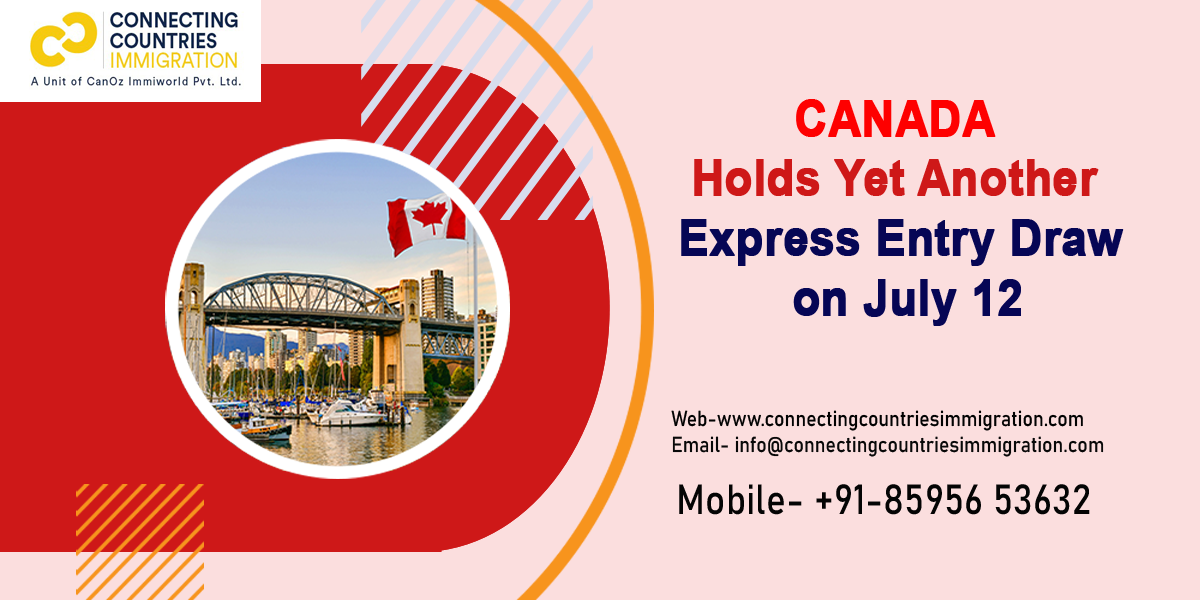The most recent round of Express Entry invites was issued by Immigration, Refugees, and Citizenship Canada (IRCC).
On July 12th, the department held a draw for 3,800 candidates having a minimum Comprehensive Ranking System (CRS) score of 375 in a French language category.
Please keep in mind that this is a developing story. CIC News will keep you updated throughout the week.
Here is an overview of the most recent Express Entry results:
July 11
On July 11, IRCC held an all-program draw for 800 candidates. Candidates needed a minimum CRS score of 505, which was much better than the previous week’s three category-based selection invites but still lower than the 511 necessary for candidates in the July 4 draw.
July 4-7
Last week, from July 4 to 7, the IRCC held four consecutive drawings.
The invitations given on July 4 were the result of an unexpected all-program draw in which the 700 invited candidates were required to have a minimum CRS score of 511. So far in 2023, this was the highest required CRS score for any all-program draw.
On July 5, the expected first-ever set of invitations was extended to candidates with job experience in select science, technology, engineering, and mathematics (STEM) occupations. IRCC welcomed 500 candidates having a CRS score of at least 486. The IRCC stated a week in advance that this draw will take place.
IRCC invited 1,500 candidates in the third draw of the week on July 6 in an expected category-based selection draw for healthcare professionals with a cut-off CRS score of 463.
On July 7, the fourth draw of the week took place. ITAs were granted to 2,300 individuals with strong French language skills and a CRS of at least 439
June 27-28
On June 27, IRCC held an all-program draw and welcomed 4,300 candidates. These contenders needed a CRS of at least 486.
IRCC issued the first-ever ITAs for category-based selection on June 28. In total, 500 individuals with healthcare work experience and a minimum CRS score of 476 were asked to apply for permanent residency.
Selection based on categories
Sean Fraser, Canada’s immigration minister, announced on May 31 that the IRCC had finalized categories for category-based selection. Following the royal assent of Bill C-19 in Canada’s parliament in June, which became law, these classifications were predicted. The law empowers the immigration minister to invite economic immigrants who will benefit Canada’s economy and promote the French language outside of Quebec.
This means that the minister can invite newcomers based on specific characteristics such as language or work experience rather than an overall CRS score.
The categories were chosen after talks with stakeholders and provincial and territory governments to identify the most critical shortages in Canada’s labour force. They are as follows:
- Healthcare
- Science, technology, engineering, and mathematics (STEM) professions
- Trades, such as carpenters, plumbers, and contractors
- Transport
- Agriculture and agri-food
- Strong French-language proficiency
Candidates chosen in these categories must still be eligible for Express Entry. A high CRS score is also advantageous because candidates will still be ranked against one another.
IRCC intends to admit 82,880 new permanent residents to Canada through Express Entry by the end of 2023, according to the Immigration Levels Plan 2023-2025. This figure will climb to 109,020 in 2024 and 114,000 by 2025. The new Express Entry categories will assist guarantee that newcomers to Canada contribute to meeting these goals while also enhancing the Canadian workforce.



